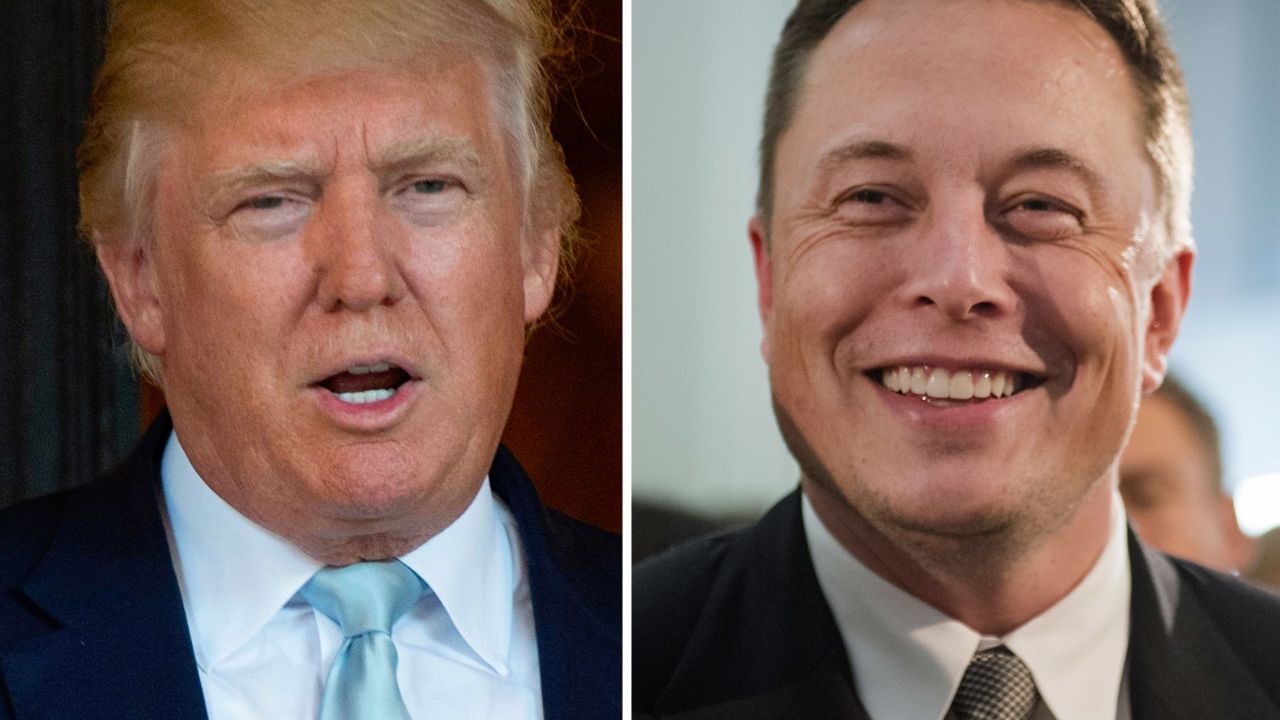A version of this story appeared in CNN’s What Matters newsletter. To get it in your inbox, sign up for free here.
In China, censors police criticism of the country’s draconian Covid-19 policy.
In Russia, referring to the country’s invasion of Ukraine as a war is a crime.
Those authoritarian realities seem a long way from the Wild West of American free speech, where people are protectedunder the law to criticize and besmirch public figures.
Just maybe not under Twitter’s content policy.
Self-described “free speech absolutist” Elon Musk’s quest to turn Twitter into his vision of a marketplace of ideas – that would also be friendly to misinformation and whatever else people want to say – has hit an ironic snag over all the fake accounts on the platform. Musk says he’s put his bid to acquire Twitter on hold ashe’s worried about fake accounts.
But he’s said he would reinstate @realDonaldTrump, the former President’s account on Twitter, and push the platform’s policy to mirror the laws of the land, which allow even more varied and raw speech than you’ll find on TV or the otherbig social media platforms.
US law protects Americans from government control of their speech but lets private companies impose their own standards.
A law to fight social media ‘censorship’
Conservatives like Trump have long felt targeted by social media companies. A Texas law addresses that, allowing residents to sue platforms with 50 million or more US monthlyusers over allegations of censorship.
It would be a shock for social media companies to suddenly adopt a First Amendment, almost-anything-goes attitude, Mary-Rose Papandrea told me. She’s a constitutional law professor at the University of North Carolina School of Law and leads the university’s Promote Democracy initiative.
“I think that people who want to impose the First Amendment doctrine on these private companies should be careful what they wish for,” she told me, pointing out that under the First Amendment rationale, Twitter could host pornography or obvious hate speech on its platform.
Two-way hypocrisy
Republicans are looking to allow lawsuits against social media companies over free speech in Texas, but then are applauding the removal of books they don’t like in school districts and treating the leak of a draft opinion from the Supreme Court on abortion as a major breach.
Democrats, meanwhile, generally want books on the shelves in schools as a matter of free speech and abhor the limiting of what teachers can discuss with elementary school kids in Florida – but are also queasy at the prospect of Trump back on Twitter.
The New York Times argued in a March opinion piece, “America Has a Free Speech Problem,” that the country may be moving backward in terms of openness.
“Americans are losing hold of a fundamental right as citizens of a free country: the right to speak their minds and voice their opinions in public without fear of being shamed or shunned,” the paper’s editorial board wrote.
The editorial itself was shamed and shunned as tone deaf.
Republicans are quick to label social backlash at controversial statements as “cancel culture,” but they were happy to pass a law in Florida literally canceling Disney’s special government status. It was retribution for the company’s decision to publicly disagree with the Parental Rights in Education law, which critics call the “Don’t Say Gay” law.
Silencing corporations’ opinions, but not their money
Will Disney learn the lesson that companies should not comment on anything political pushed by Florida Gov. Ron DeSantis?
It can always quietly donate to political causes, an exercise of free speech – even for corporations – recognized by the Supreme Court.
A new court could upend a free speech precedent
It’s unclear how the new conservative majority on the Supreme Court will view these types of questions about social media.
Papandrea said what gives her a lot of unease is that the court could fundamentally change our view that free speech allows people to criticize powerful public figures.
She pointed to the 1964 New York Times v. Sullivan decision, which allows everyone to criticize public figures.
“There is some concern that there’s a growing number of justices who would be willing to overturn this fundamentally important landmark opinion that protects the rights of all speakers to criticize public officials. That would be a dramatic change and a dangerous change.”
Free speech in the justices’ driveways
Conservative Supreme Court justices are certainly being criticized today for being on the cusp of taking away the right to privacy and for women to obtain abortions as established in the 1973 Roe v. Wade decision.
Loud protests in front of the homes of conservative justices like Samuel Alito and Brett Kavanaugh have led Republicans to argue that protesters are violating a 1950 law that outlaws picketing outside a judge’s house with the intent to influence a decision.
But protesting a Supreme Court decision at least feels like textbook free speech.
Roy Gutterman, director of the Tully Center for Free Speech at Syracuse University, told me the way we interact with speech is changing rapidly with access to more and different platforms for expression.
“But we’re also in an era where many of us just want to hear what we want to hear,” he said. “And we seek out news and information that we agree with, and we want to repel people we disagree with.”
What people are willing to hear may start to have more of an effect on their ability to say it.



